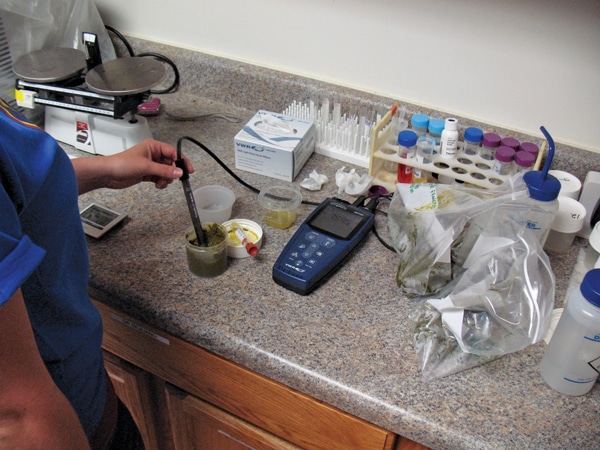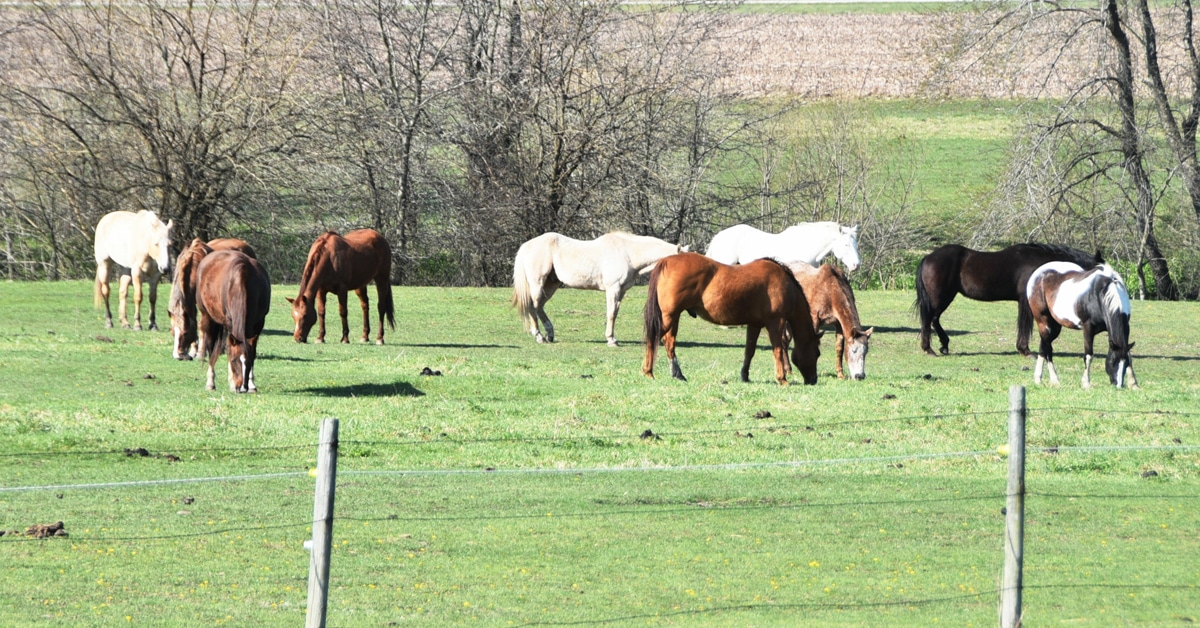Is your deworming protocol outdated? Modern research has shown that our traditional worming tactics are not the best way to deal with equine parasites.
Internal parasites can cause weight loss, inappetence, diarrhea, colic, and slow the growth of young horses. Common parasites include small strongyles, tapeworms, ascarids (aka roundworms), and large strongyles. In adult horses, small strongyles and tapeworms are the most prevalent while, in foals, ascarids are of the biggest concern.
While dewormers are good preventative medicine, traditional deworming protocols are now recognized as a large contributor to parasites resistant to common dewormers. Resistance to dewormers is a growing concern, meaning over time dewormers will become less effective at treating parasitic infections in our horses. This means it is time to rethink how we approach deworming horses.
Deworming protocols should be adapted to suit the needs of your individual horse. Horses have different levels of susceptibility to certain parasites based on various factors such as age, pasture type, travel, et cetera. Therefore, we need to be more strategic in our approach to deworming and instead shift focus to deworming on a more individual basis based on your horse’s unique needs.
Recommended Deworming Protocol for Adult Horses
The modern approach to deworming focuses on your horse’s individual deworming needs. While it may differ to the traditional deworming strategies you may be used to, new deworming protocols allow us to better address equine parasites, reduce the use of dewormer, and can be more cost-effective for you.
The modern approach to parasite control has three main goals:
1. Avoid needless deworming.
2. Use the correct dewormer to target specific parasites.
3. Reduce the parasite burden to protect your horse.
After years of research, the American Association of Equine Practitioners published an updated guide on how best to approach deworming.

Horses should be tested for parasites before treatment via a fecal egg count test to determine if deworming is even neccessary, and if so, with which drug. (Shannon Pratt-Phillips photo)
For adult horses (over 3 years of age) the deworming protocol is as follows:
1. In the spring and fall, collect fresh manure samples from your horse and have your vet run a fecal egg count (FEC).
2. The FEC will determine if your horse is a low, moderate, or high shedder.
3. Deworm all horses, regardless of their shedding status, 7 days following the FEC test. Use a weight tape or scale (if you have one) to accurately dose dewormer for your horse. Consult your veterinarian on the type of dewormer to be used.
4. Ten to fourteen days after deworming, collect a second manure sample and have your vet run a fecal egg count reduction test to look at the effectiveness of your dewormer. A fecal egg reduction test should be performed at least every 3 years.
As for how often you deworm your horse, it depends on your horse’s egg shedding status. Horses that are moderate to high shedders will require further treatment throughout the year while horses that are low shedders will only require spring and fall deworming.
If your horse lives as part of a herd, it can be difficult to obtain a fecal sample. In these cases, removing the horses individually and placing them in a stall or trailer can help with obtaining a fecal sample. Alternatively, your veterinarian can help you obtain the sample manually.
Rotational Worming and Dewormer Resistance
What makes this modern approach better than traditional deworming strategies? Traditional deworming strategies, also known as rotational worming, were developed over 50 years ago.
Rotational worming, where you worm your horse every 2 months and rotate dewormers with different active ingredients, was intended to target specific parasites throughout the year. We now know that this method contributes to resistance to dewormers and is excessive for the majority of horses.
Currently, equine parasites are becoming increasingly more resistant to dewormers to the point where no barn is safe from dewormer-resistant parasites. Since dewormer resistance is such a common issue, fecal egg counts and following with fecal egg count reduction tests give us important insight into the effectiveness of our deworming routine.
Non-Chemical Parasite Management
Horses obtain worms from consuming contaminated pasture. While deworming is our #1 strategy for reducing the parasite burden in our horses, there are some other tactics you can use to decrease parasites in your horse’s environment including:
- Regularly removing manure from pastures. Ideally pastures should be picked daily but once or twice weekly is also helpful.
- Feed horses from buckets rather than off the ground.
- Avoid overcrowding pastures. Keeping the stocking density low can reduce each horse’s exposure to contaminated pasture.
- Generally, you should have 1 horse per 2 acres of pasture.
- If you spread manure on your pastures, be sure it is properly composted first to avoid contamination.
Conclusion
Resistance to dewormer is a very common concern contributed to by traditional deworming approaches. Individual horses can have varying levels of internal parasites so taking into account your horse’s specific needs which will not only be better for your horse, but will be more cost-effective to you as well.

